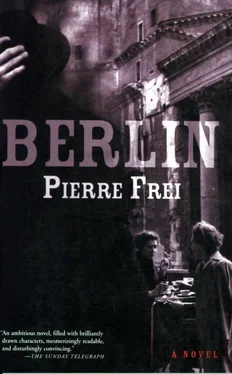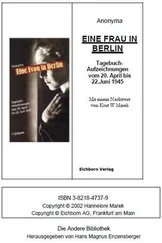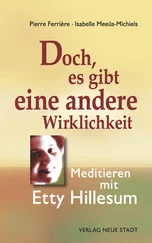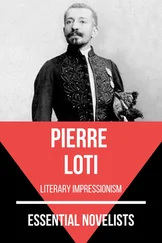Soldiers dressed in heavy cotton drill were doing pointless exercises among the huts, with an NCO shouting at them. Was Reinhard there? She couldn't make out the faces. A young officer hurried up to her. 'I'm Lieutenant Hartlieb. Please come this way. Colonel Marquardt is in his office.'
The colonel was a grey-haired man in his fifties. 'We didn't expect you quite so soon, Frau Lohmann.'
'You were expecting me?' Helga was puzzled.
'Didn't our messenger reach you?' It was the colonel's turn to seem baffled. 'Well, never mind. My deepest sympathy, dear lady. A dreadful accident, and on the very first day of the course.'
An exploding gun barrel had shot away half of Officer Cadet Reinhard Lohmann's head during target practice.
'They sent us rifles captured from the Poles for training purposes. Poor quality arms. Your husband would have made a good officer. Of course we'll give him a military funeral. Again, let me express my condolences. If there's anything else I can do for you…?'
Helga shook her head in silence. Relieved, the colonel escorted her out.
On the way home she sat alone at the very back of the S-Bahn train. She imagined Reinhard's face before her, young and laughing, the way he was when she first met him. But the grief would not come. Her only thought was, now he can't tell me where Karl is.
One person could tell her, though. Helga Lohmann hoped to see him at Reinhard's funeral, but Reinhard's old school friend preferred to send a large wreath and a note of condolence on hand-made, deckle-edged paper. He had Party business in Munich, he explained in an accompanying note. On the day of his return she went straight to see him.
National Socialist Legal Adviser Dr Gunther Olbrich was in the Berlin Gauleitung offices in Hermann-Goring-Strasse. Helga gave her name to the doorman, and was sent to a first-floor waiting room furnished with comfortable, upholstered chairs.
When the door of the adjoining office finally opened a half-hour later, she leaped hopefully to her feet. It was Olbrich's secretary. She had lost weight, and there was a hard set to her mouth. He's dumped her, thought Helga.
'Fraulein Seitz, am I right? Helga Lohmann — we met at the Olympics, remember? Goodness me, that's nearly five years ago. How are you?'
The secretary's manner remained cool. 'My condolences. I know Dr Olbrich has already sent you his. He asks you to forgive him — he can't spare any time at the moment.'
'Never mind. I can wait.'
As you like.' A cold glance, and Ulla Seitz disappeared into the office next door.
Endless waiting. She played mind games. Was the farmer in the oil painting behind her sowing seed with his right hand and putting his left foot forward, as she thought? She turned to check. He wasn't sowing seed at all but scything wheat. Remembering what was in pictures, a game she often played with Karl. Dr Weiland, their old family GP, had recommended it. 'Good memory practice for the boy.'
She could see Karl before her, hands over his eyes, guessing what was in the reproduction of Rembrandt's Man in the Golden Helmet that hung over the sideboard. 'He's got — got a green hat with a feather in it, 'n there's a — a sparrow sittin' on it, 'n the sparrow — the sparrow got a choccy in its beak.'
'Really?' she used to ask in mock amazement. And he would laugh and laugh, because he'd managed to lead her up the garden path. She couldn't help smiling. Then reality came over her again like a cold shower. They'd taken her Karl away from her.
Her watch showed five o'clock. Had she dozed off? Had Dr Olbrich called for her? Hesitantly, she opened the door of the office. Ulla Seitz was putting on lipstick in front of the mirror. 'The office is closed.'
'Dr Olbrich?'
'Gone home. He's had a very stressful day. Come back tomorrow.'
She was there just before nine next morning and intercepted him at the entrance. He stopped for a moment. 'Frau Lohmann, what a terrible accident. I really am so sorry.'
'Please tell me where my son is.'
'I'm in a hurry. The Gauleiter's expecting me. Get my secretary to make you an appointment.' And he got into the lift.
She went slowly upstairs. Ulla Seitz was just pouring tea. 'Would you like a cup?'
'No, thank you. I'm supposed to ask you to make me an appointment. I don't need an appointment. I want Dr Olbrich to be good enough to tell you where they've taken my son, and then I want you to tell me. I have to find him. He's so helpless without me.'
'I don't know that I can help you.' Yesterday's chilly tone was back in her voice.
Helga bent her head. She said, quietly, 'It grows inside you, you see, and you're so happy when it begins to kick in the womb. You just can't wait for it to arrive. And at last there it is. Your own baby. The most beautiful baby in the world, even if he isn't the same as all the others. You love your child, you'd do anything in the world for him. He needs you, just as you need him, but they take him away from you.' She raised her head and sought the secretary's eyes. 'You don't know what it's like — everything's suddenly so empty.'
Ulla Seitz was not evasive this time. 'Empty,' she repeated bitterly. 'So empty.' She paused for a moment. 'He made me have an abortion. Surely I must understand that a man in his position couldn't have a pregnant secretary. Oh yes, I understood. Most of all I understood that he wanted someone younger. She's eighteen and works on the switchboard. A pretty, naive little thing. In return I keep my position of trust, with a good salary and pension. Your son is in Klein Moorbach hospital. It's a private mental hospital with a department for children who don't fit in with today's ideas. Be careful. You won't get anywhere as a mother wanting her child back. One wrong step and you'll never see your son again.'
'Thank you.' Helga reached for her hand, but Ulla Seitz drew back, and spoke in a loud voice. 'Dr Olbrich is a very busy man. Please don't come here any more. I suggest you write to him.' Olbrich had entered the room.
Klein Moorbach was a remote hamlet on the borders of the Spreewald. Helga had brought her old bicycle on the train with her. She cycled along country roads. Bright-green birch trees, larks in the blue sky, flowery meadows — and on the path through the fields a tractor noisily spreading its stink of diesel. She took no notice of this springtime idyll. As camouflage, she had brought her easel and painting things with her. Helga had a moderate talent for water colours.
She went into the Klein Moorbach village inn. On the radio, fanfares prepared listeners for a momentous announcement: France had surrendered. The men sitting at the tables raised their heads. 'Whole damn thing'll soon be over, then,' said one of them.
A smell of vegetables freshly cooked in butter and fried meat came from the kitchen. 'Meat loaf,' the plump landlady told the new arrival. 'You'll need to let me have meat coupons, fifty grams' worth.'
'Hey, Frieda, don't you mean bread coupons?' called a farm worker from the bar. The men laughed. Helga laughed with them.
'You lot don't have to count up those damned snippets of paper,' the landlady retorted, unfazed. 'You can have vegetables and mashed potato here off the ration,' she said to Helga. 'Like a beer?'
'No, thank you. A seltzer water, please,' said Helga.
'On holiday?'
'My day off. I thought I'd do a little landscape painting. Anywhere specially pretty around here?'
'There's Moorbach, on the edge of the forest,' one of the farmers at the next table suggested. 'Only it's not safe right now. Some nutcase broke out of the loony bin.'
'Loony bin?'
'Klein Moorbach, a psychiatric hospital, they call it. Easier to get in than out again. They call you crazy these days if you so much as squint. But that chap really is a danger.'
Читать дальше












